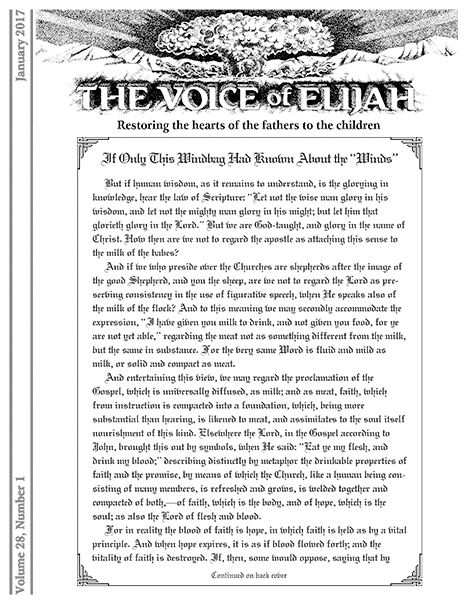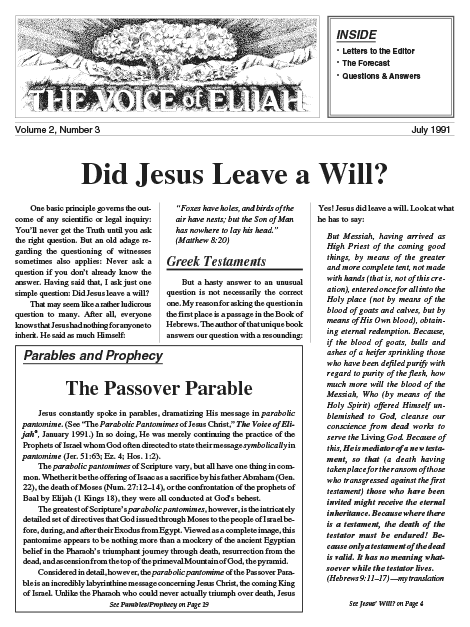Excerpt From Newsletter
I have already written the most succinct explanation of the things you need to know about the oral will that Jesus made in an article I wrote for the July 1991 issue of this newsletter. Therefore, I am going to have it reprinted here just for the record:
One basic principle governs the outcome of any scientific or legal inquiry: You’ll never get the Truth until you ask the right question. But an old adage regarding the questioning of witnesses sometimes also applies: Never ask a question if you don’t already know the answer. Having said that, I ask just one simple question: Did Jesus leave a will? That may seem like a rather ludicrous question to many. After all, everyone knows that Jesus had nothing for anyone to inherit. He said as much Himself:
“Foxes have holes, and birds of the air have nests; but the Son of Man has nowhere to lay His head.”
(Matthew 8:20)
But a hasty answer to an unusual question is not necessarily the correct one. My reason for asking the question in the first place is a passage in the Book of Hebrews. The author of that unique book answers our question with a resounding: Yes! Jesus did leave a will. Look at what he has to say:
But Messiah, having arrived as High Priest of the coming good things, by means of the greater and more complete tent, not made with hands (that is, not of this creation), entered once for all into the Holy place (not by means of the blood of goats and calves, but by means of His Own blood), obtaining eternal redemption. Because, if the blood of goats, bulls and ashes of a heifer sprinkling those who have been defiled purify with regard to purity of the flesh, how much more will the blood of the Messiah, Who (by means of the Holy Spirit) offered Himself unblemished to God, cleanse our conscience from dead works to serve the Living God. Because of this, He is mediator of a new testament, so that (a death having taken place for the ransom of those who transgressed against the first testament) those who have been invited might receive the eternal inheritance. Because where there is a testament, the death of the testator must be endured! Because only a testament of the dead is valid. It has no meaning whatsoever while the testator lives.
(Hebrews 9:11–17) —my translation
The author of the Book of Hebrews has given us here but a brief glimpse into one of the key links between the message of the Old Testament and that of the New.
“The Quickest ‘Way’ to Get Rich Quick Is to Inherit a Fortune,” The Voice of Elijah®, January 2020, pp. 11–12
Newsletter Details
| Contribution of | $6.00 |
|---|---|
| Pages | 20 |
| Author | Larry Dee Harper |
| Language | English |
The Truth is Available
Check Out the Online Library
Browse through our library of booklets and newsletters—absolutely free!
Start Reading Now



